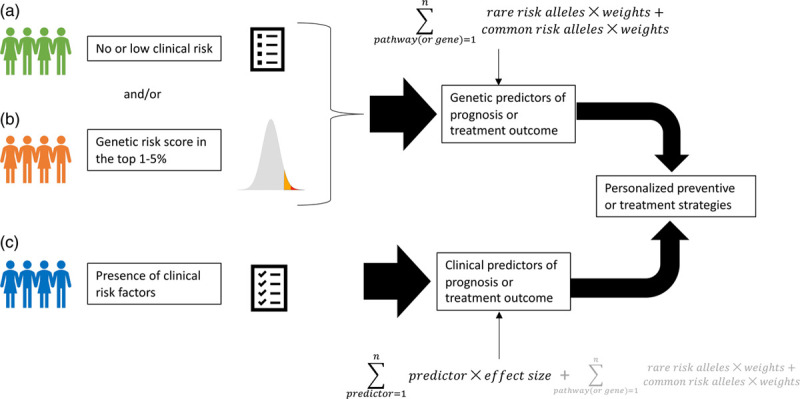Fig. 1.

In the scenarios A and B, genetic risk factors are hypothesized to be the most useful to predict disease prognosis and/or treatment outcome and guide the prescription of personalized clinical interventions. A and B can co-exist in the same subject. In scenario C, when the patient shows known clinical risk factors, these probably represent the simplest and most effective way to guide clinical interventions. However, genetic predictors may still add helpful information in case C. Genetic predictors may be pathway- or gene-based or genome-wide, and they should ideally include the contribution of rare variants.
